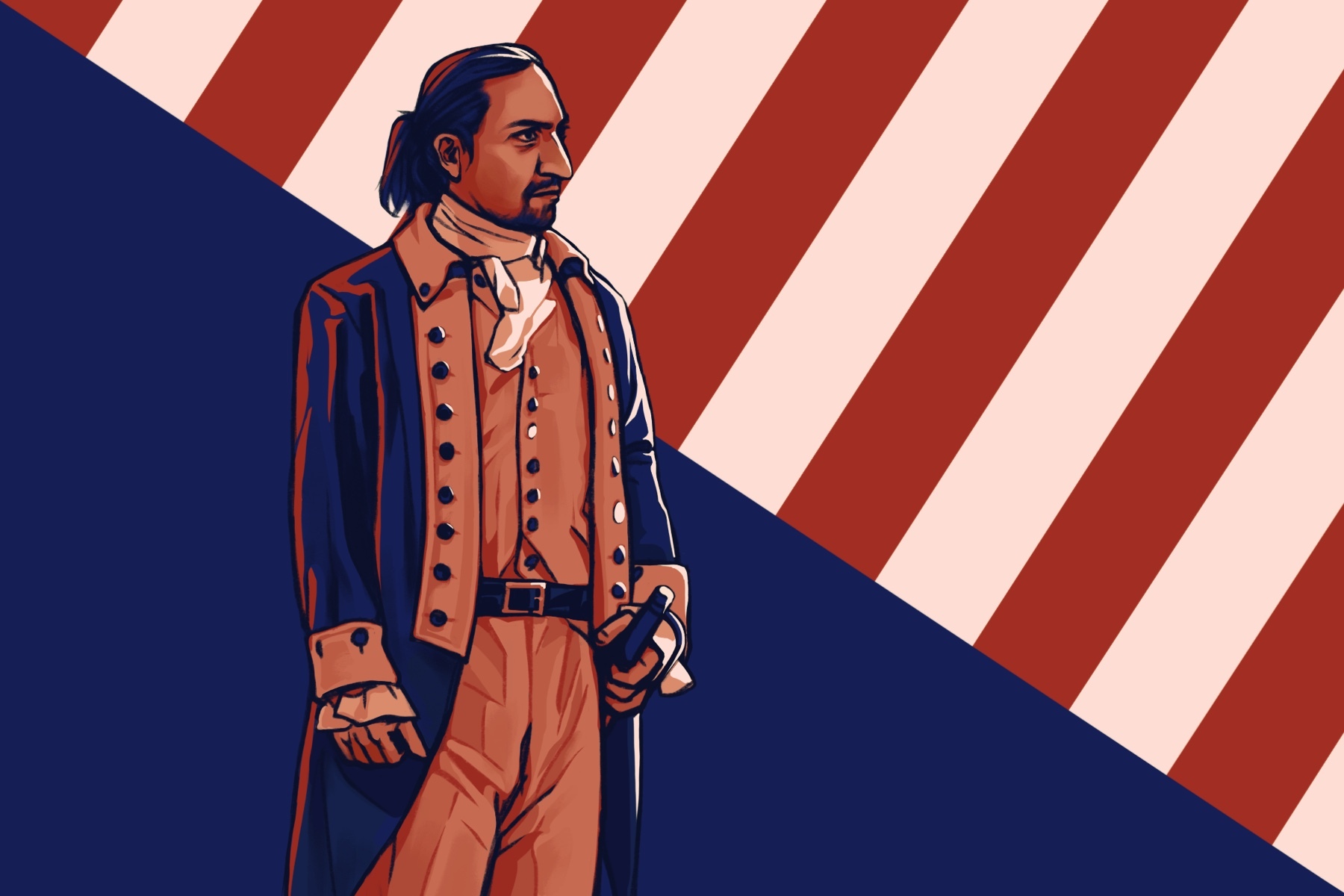Pulitzer Prize-winning playwright Lin-Manuel Miranda established himself as the quasi-patron saint of the theater with the overwhelming success of his musical “Hamilton.” Garnering immense critical acclaim, “Hamilton” paved the way for an illustrious career studded with honors of every persuasion. For a moment, everything he touched turned to gold.
Or so it would seem.
Alas, it would appear that Miranda’s golden ticket has reached its expiration date. He was an aging star, a ticking time bomb. Something once shiny, cast aside for a treasure of greater luster. Miranda has yet to become a victim of cancel culture, as he hasn’t committed any egregious errors in the public eye; nevertheless, in the past year, his cult following metamorphosed into a horde of jaded Gen Z critics who admire the art irrespective of the artist.
The crux of “Hamilton” and the play’s acclaim lies not solely in its lyrical brilliance, but also in the unprecedented representation of BIPOC actors on a Broadway stage. In the rap musical detailing the life of Founding Father Alexander Hamilton, Miranda made a concerted effort to assemble a color-conscious cast. Casting himself as the titular character, Leslie Odom Jr. as Aaron Burr, Christopher Jackson as George Washington and Daveed Diggs as Thomas Jefferson, Miranda created a team that could do no wrong. The original cast of “Hamilton” was comprised of the best and the brightest BIPOC actors the theater had to offer to portray historically white Founding Fathers.
The casting of “Hamilton” undoubtedly played into its success at the box office, not necessarily because it was unprecedented, but because its orchestration was seamless. Miranda is by no means the first theater artist to practice color-conscious casting; however, he became one of the first playwrights to bring a racially diverse cast to such monumental success. “Hamilton” was nominated for a record-breaking 16 awards at the 70th Tony Awards, winning 11.
In the wake of heightened cultural sensitivity toward the persistent influence of institutional racism, “Hamilton” came under scrutiny. Miranda glosses over the fact that many of the Founding Fathers — not just Jefferson — owned slaves. Hamilton vilifies Jefferson for owning slaves, and rightfully so, but fails to reckon with the slaveholding legacies of other Founding Fathers in an attempt to paint a simpler narrative of good versus evil.
Furthermore, when examined in tandem with its casting, from a meta-theatrical perspective, “Hamilton” rings a little tone-deaf. Casting Black actors as former slave owners and having them perform for primarily white wealthy theatergoers seems a bit tactless. Glorifying historical figures without acknowledging their failings is a practice entrenched in American cultural history, and despite its nouveau facade, “Hamilton” is no exception.
More recently, the new film adaptation of Miranda’s earlier work “In the Heights,” a musical detailing the daily lives and struggles of Latinx people living in Washington Heights, has come under scrutiny for similar reasons. While its cast is racially diverse, the film has been criticized as colorist, as it primarily features light-skinned or white-passing actors in main roles. The actual demographics of Washington Heights feature substantial Black and Dominican populations, yet the musical does a poor job of representing it.
Miranda cordially responded to his detractors by acknowledging his mistakes. In a recent tweet he stated, “In trying to paint a mosaic of this community, we fell short. I’m truly sorry. I’m learning from the feedback, I thank you for raising it, and I’m listening. I’m trying to hold space for both the incredible pride in the movie we made and be accountable for our shortcomings.”
Despite these setbacks, both “Hamilton” and “In the Heights” have proved to be immensely successful, garnering critical acclaim and countless awards. Miranda’s work has its shortcomings, but the caliber of his scores and lyrics speaks for itself.
The man just needs to stop biting his goddamn lip.
The infamous — and repeated — lip-biting selfies Miranda posts have made him the butt of many a joke on TikTok, and for good reason. The man is in his 40s, and he’s married with children. The thirst traps are silly at best. His goofy brand of narcissism further exemplifies itself through the sale of his custom selfies at $79 a pop on his website.
TikTok also had a field day making fun of Miranda’s vocals, which admittedly differ significantly from his Broadway contemporaries. His strong Nuyorican accent coupled with his unbridled enthusiasm is akin to the theater kid in high school who took themselves just a touch too seriously. Indeed, it seems that Miranda’s perception of his own skills as a vocalist and performer may be somewhat inflated.
On "When You're Home" and writing while falling in love. -LMM #HeightsTome pic.twitter.com/09J9CDsFFW
— Lin-Manuel Miranda (@Lin_Manuel) June 25, 2021
His position as an accomplished writer and composer gives Miranda priority access to the casting table, and he takes full advantage of it. You’d be hard-pressed to find a musical he wrote that he doesn’t make at least a cameo in. In the 2008 Broadway production of “In the Heights,” Miranda played Usnavi — not to mention his star role “Hamilton” — and he even wrote numerous songs for and sang in the Disney animated film “Moana.” One can’t help but wonder if it’s in his contract to star in every piece he writes for.
Self-insert theater is frowned upon in the theatrical world, and Miranda’s case is no exception. Furthermore, the man simply lacks the vocal chops to justify it. He’s a skilled actor and a decent rapper, but his voice — simply put — is not made for musicals. Musical theater legends are lauded for their ability to adapt a signature vocal style to a wide range of characters. Miranda’s raspy, unrefined croons fail to adjust accordingly. He can only play one character: himself.
His successes in the entertainment business are innumerable, and he has established himself as an invaluable staple in the industry. However, Miranda’s public reputation still hangs in the balance. In “My Shot” Hamilton raps, “What is a legacy? It’s planting seeds in a garden you never get to see.”
Miranda’s seeds are cast — now it’s time to see whether they sprout into flowers or weeds.

















